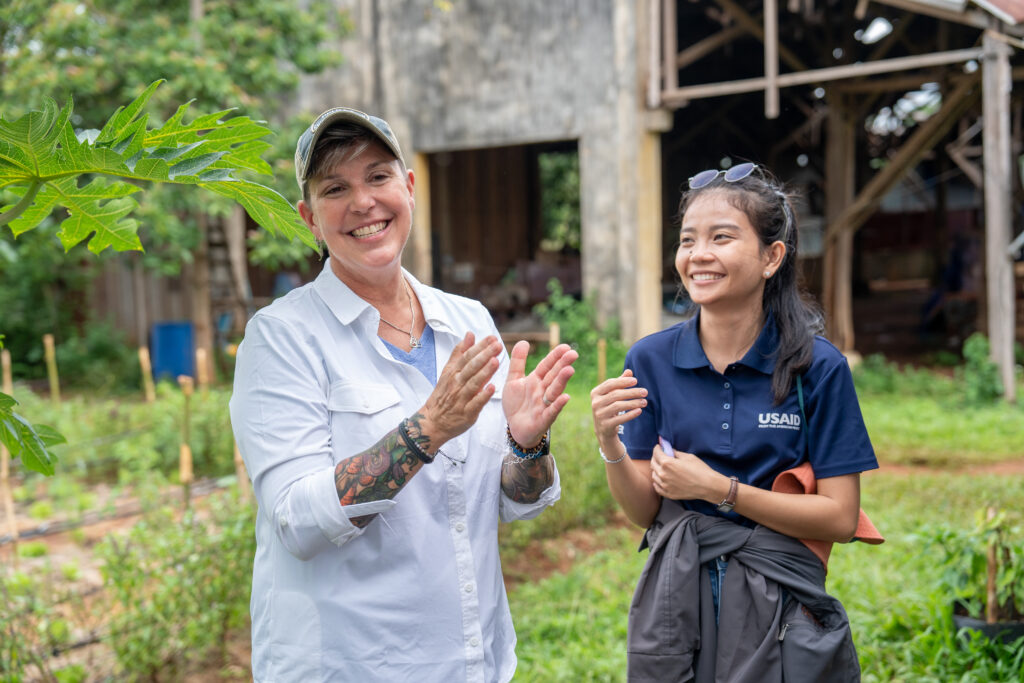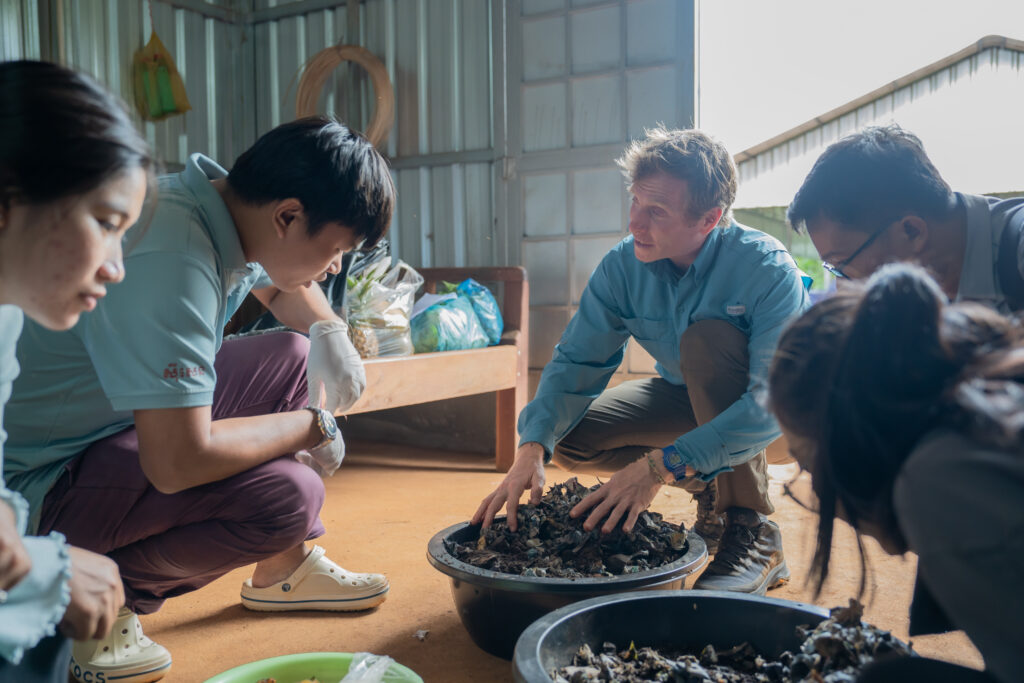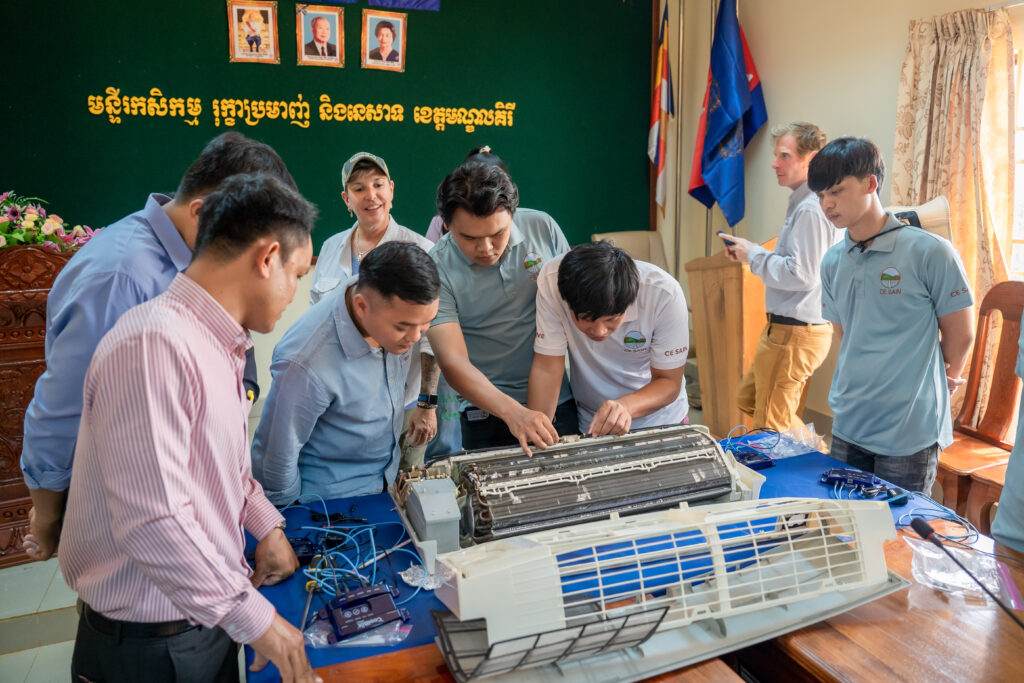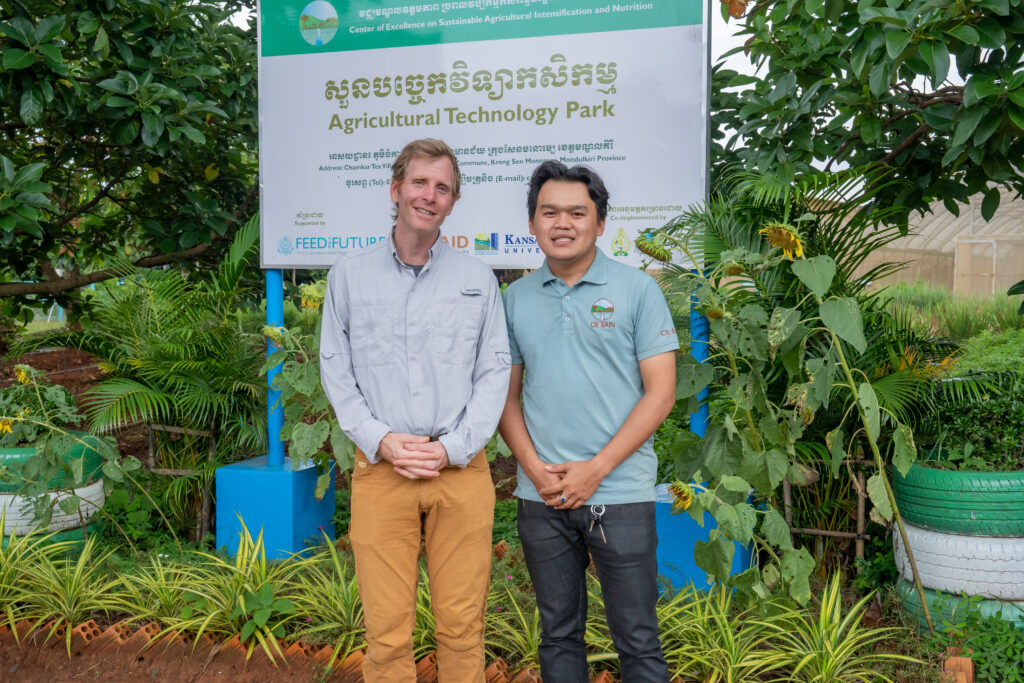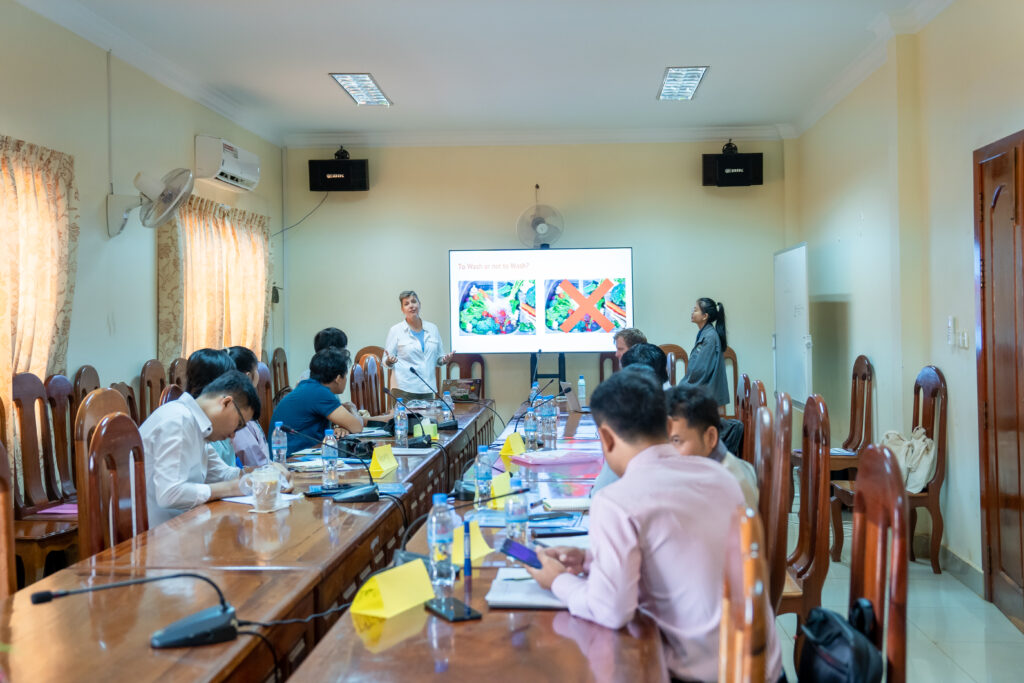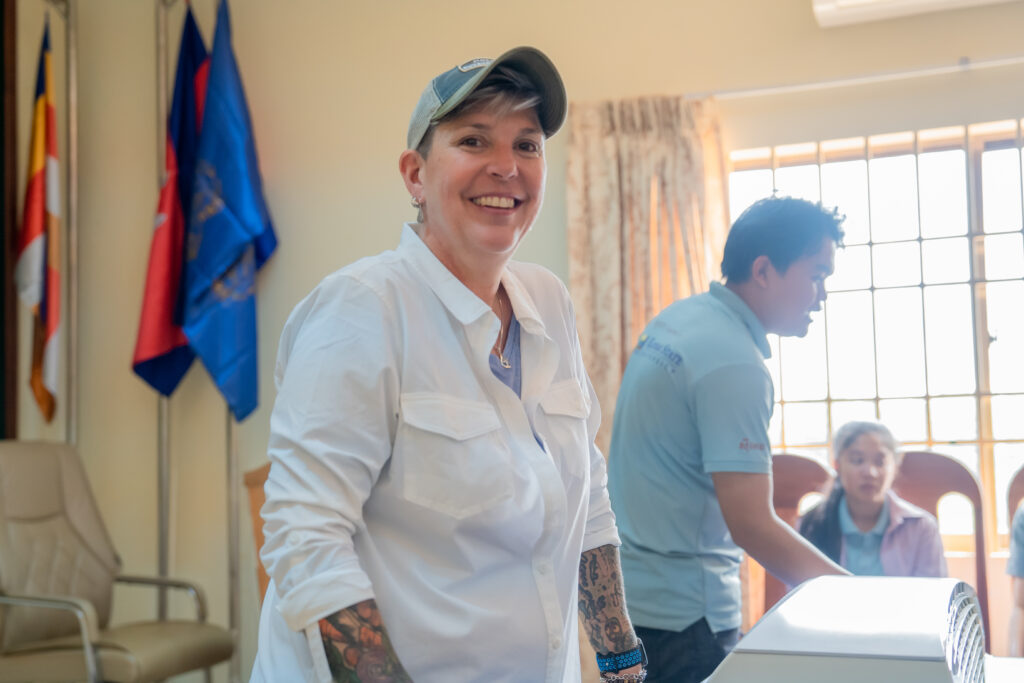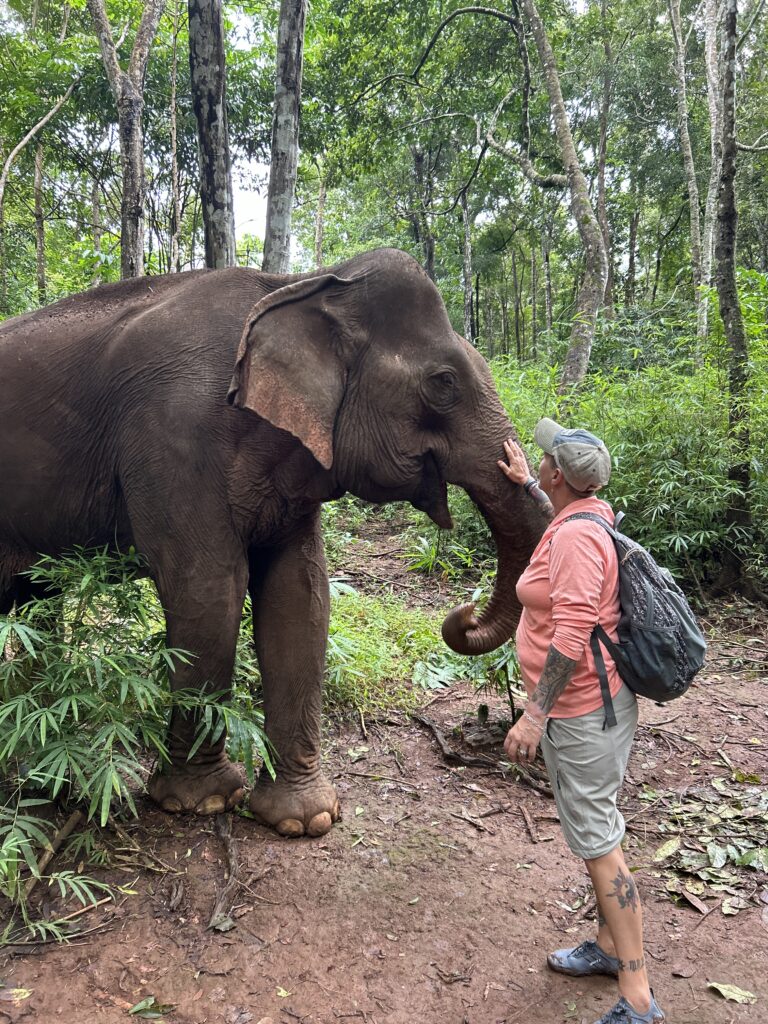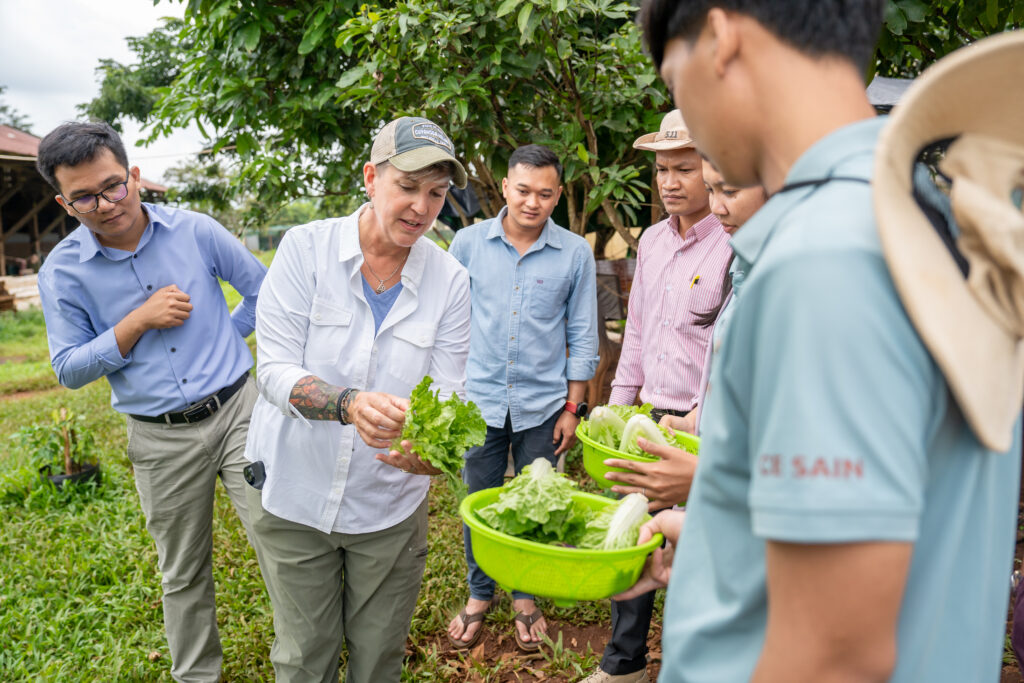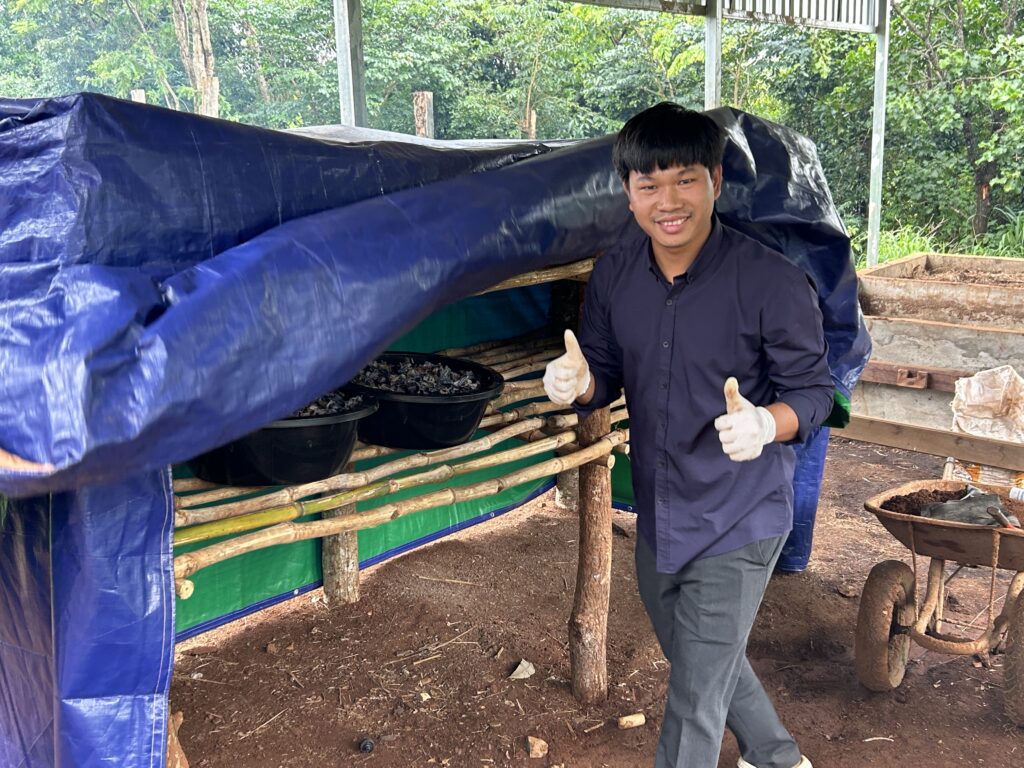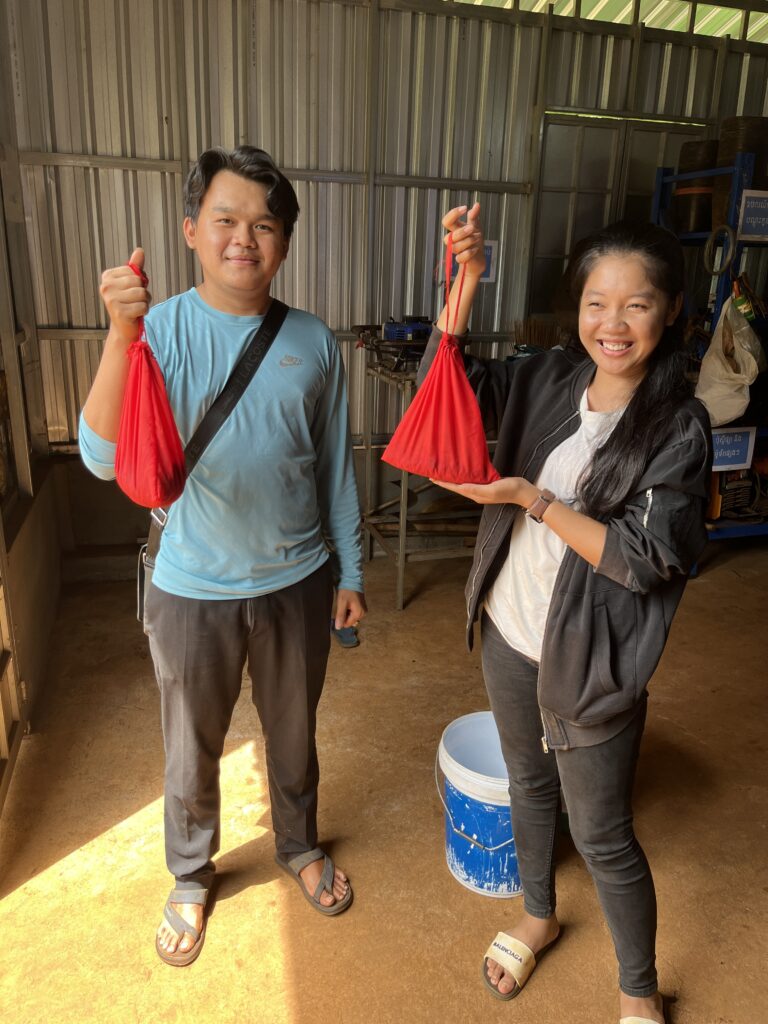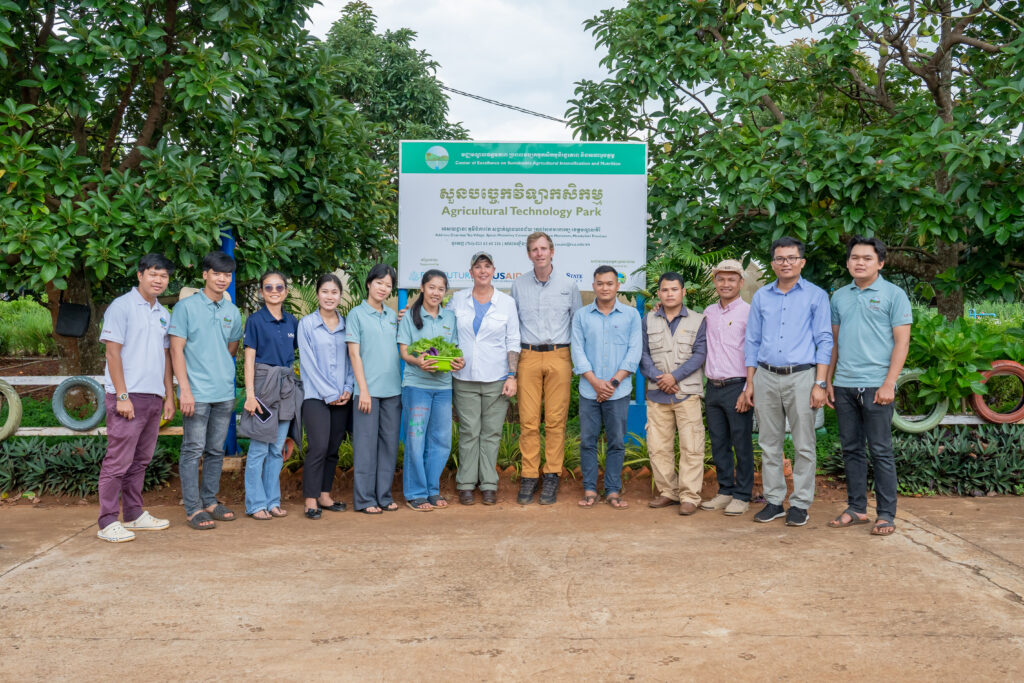
The USAID-funded John Ogonowski and Doug Bereuter Farmer-to-Farmer (F2F) Program provides technical assistance from U.S. volunteers to farmers and agricultural groups in foreign countries to promote sustainable improvements in both food security and agricultural production, processing, and marketing. In the Fall of 2023 the Smith Center was awarded five years of funding to implement the “Agricultural Leaders of Tomorrow” (ALOFT) regional USAID F2F program for Southeast Asia. The ALOFT program is building off the previous F2F AVOP project that the Smith Center implemented in Cambodia from January 2022 to September 2023 in partnership with the Center of Excellence on Sustainable Agricultural Intensification and Nutrition (CE SAIN).
Working with partners at the Royal University of Agriculture in Cambodia, ECHO Asia, and the Central Philippines State University in the Philippines, the ALOFT program provides technical assistance in climate-smart agriculture, agricultural entrepreneurship and agribusinesses, agricultural education, extension and advisory services through short-term exchanges between skilled American volunteers and farm groups, agribusinesses, NGOs, and universities. These exchanges place American volunteers with Southeast Asia host-organizations for two-week assignments to respond to local requests for technical assistance.
Follow along through our F2F Success Stories as we highlight the experiences of past F2F volunteers and raise awareness about future volunteer opportunities through the ALOFT Program.
In July 2024, Kim Butz and Billy Mitchell traveled to the Mondulkiri Province in Cambodia to conduct their two-week long ALOFT Farmer-to-Farmer (F2F) assignments. The volunteers were hosted by the Mondulkiri Agricultural Technology Park, one of a network of research and extension stations managed by the Center for Excellence in Sustainable Agriculture Intensification and Nutrition (CE SAIN). ALOFT partners with CE SAIN to implement F2F programming in Cambodia. During this first year, ALOFT Cambodia has focused on strengthening the capacity of these Agricultural Technology Parks to promote the adoption of agricultural technologies among smallholders. Over the course of two-weeks, the volunteers led workshops for students, interns, and local NGO staff in Mondulkiri.
Kim Butz, a produce safety coordinator with the Carolina Farm Stewardship Association, focused on post-harvest vegetable practices for her assignment. In the classroom, Butz began with the basics of plant pathology and why post-harvest management is important to extending the shelf life of produce. Butz promoted simple adjustments that could be made using locally-available resources to improve product quality and ultimately increase the value for the farmer. Hands-on activities like installing a CoolBot unit and harvesting and packing vegetables in a climate-controlled room helped solidify the classroom instruction. Butz said, “When participating, particularly during the hands-on work, you could see how the knowledge transfer kept them engaged and excited to learn.”
Butz shared that the participants were a young and talented group. Working through an interpreter and providing hands-on instruction, she was able to overcome the language barrier that separated them. Kim shared, “The smallest things make a big difference, and I saw that play out over the 16-day assignment. It was refreshing to have this level of engagement, and I would welcome the opportunity in any future Farmer-to-Farmer opportunities where I could be a part of that change.”
Billy Mitchell, a PhD student studying food science with the University of Georgia, focused on vermicomposting. Mitchell saw that while the cost of entry into vermicomposting is very high, so is the interest. He began each day of the workshop with classroom instruction covering topics such as worm taxonomy, anatomy, life cycle, light, moisture, and soil. Moving outside for hands-on applications, the participants built the vermicompost bins, fed the worms, and packed them away for the weekend. The Mondulkiri technology park will use these prototypes to demonstrate vermiculture to other farmers in their network and as a source of compost for vegetable production.
The following Monday, Mitchell and the students returned to the bins to look for cocoons, which showed that the worms were thriving. Billy admitted that he was not certain that the bins would succeed at first, and was prepared to troubleshoot with the training participants. Fortunately, that was not the case. Mitchell said, “I will never forget when the interns found the first cocoons in the worm bins they had built; one of the best moments I have had as an educator!”
Mitchell credits the experience of volunteering with F2F for inspiring him to continue to teach and learn from other communities. He states, “I was a small-scale farmer before I began teaching and have worked alongside many limited resource, small scale farmers in the U.S. who often face similar challenges as the farmers in Cambodia.” Mitchell hopes to see the Mondulkiri agricultural technology park create a comprehensive plan for growing their vermicomposting efforts while teaching and supporting local farmers.
Butz and Mitchell remarked on the level of engagement and inquisitiveness of the Cambodian participants, who had never encountered these agricultural technologies. They also pointed to how much they learned from the participants in return. Both volunteers found that the biggest impact came from moving out of the classroom and allowing the participants to apply their new knowledge. The volunteers each produced site-specific manuals for the workshop participants and the host organization staff to utilize in future training with local farmers.
The overarching goals for the ALOFT program are to help meet host organizations’ specific agriculture technical needs, allowing them to empower youth in Southeast Asia and provide U.S. volunteers with a meaningful international experience that will broaden their perspective of agriculture and other cultures. Interested in serving as a F2F volunteer? Fill out the volunteer request form linked below, and a member of our team will reach out with more information!
